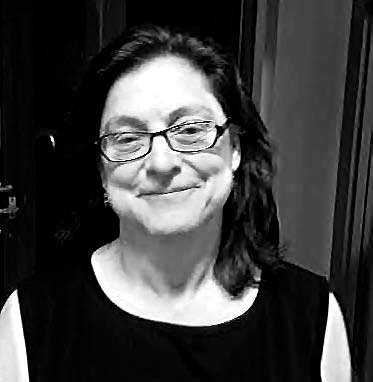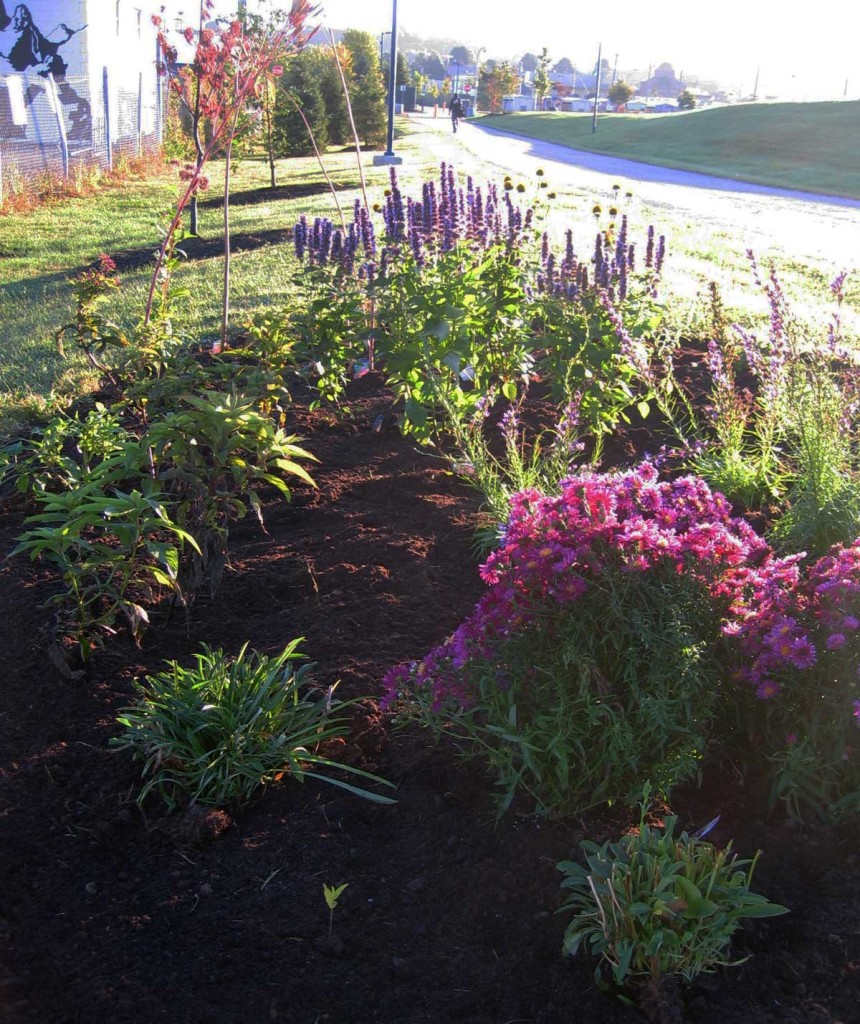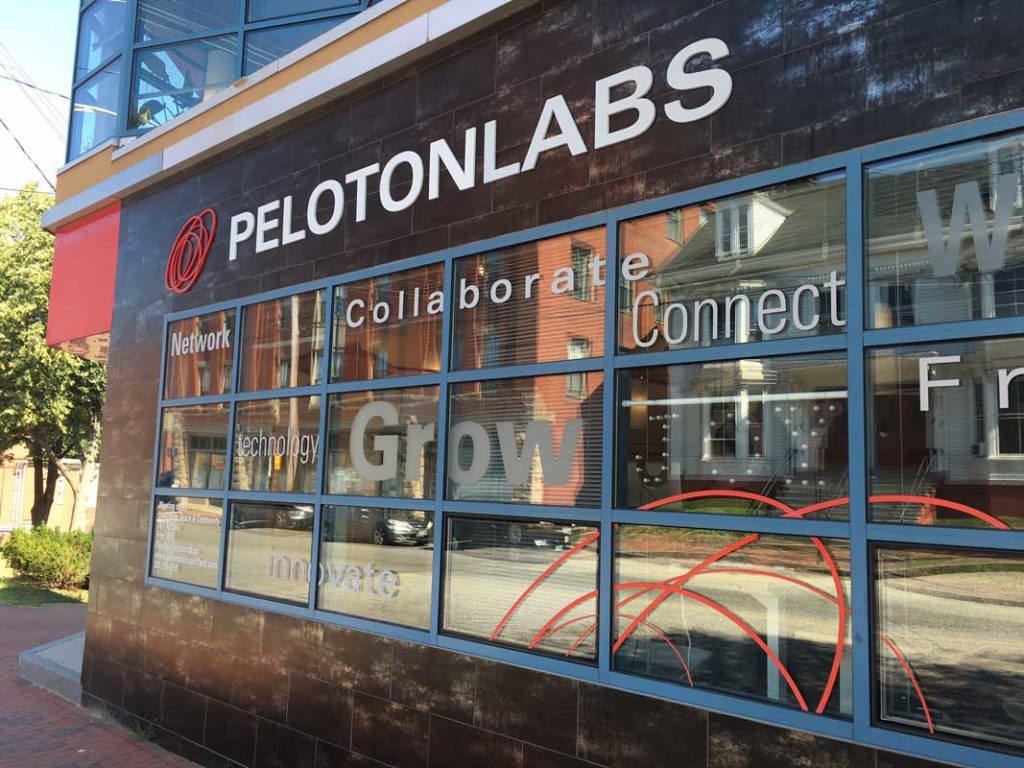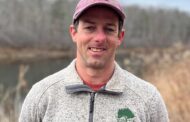
Carol McGorrill: Maine Angels & Pollinators
Every Month PelotonLabs founder Liz Trice interviews a Peloton member for the West End News. This month Liz caught up with Carol McGorrill, the administrative coordinator for the Maine Angels and a pollinator enthusiast.
What is the Maine Angels?

The Maine Angels is a non-profit membership organization of accredited investors who are seeking startup companies that are scalable for investment. The “angels” are individually investing their personal funds into companies. Entrepreneurs submit applications which a screening committee reviews and identifies those that are the best fit for a likely investment by members. Scalable means that a company has an intention to grow far beyond what one person can do, and beyond one town.
Why the term Angels?
It comes from theatre. Angels are investors in theatre productions at early stages, with the hopes that a small production will make it big. It’s sometimes misunderstood to be charitable, but it’s not. It’s an early stage, high-risk investment, that has the potential for significant returns. Our companies typically come in after they’ve tapped their own family and friends’ funds but can’t yet get bank or venture capital funds.
What’s your background?
I’ve worked in nonprofits, volunteer coordination, supporting committees, and boards. When I started with the Maine Angels, I was looking for something to ease my way back into working, and I was hired to take the minutes at meetings. That role quickly grew to organizing the meetings, communicating with members, and supporting the executive committee.
Tell me about some of the companies the Maine Angles have invested in – would we recognize them?
Some of the companies are Pika Energy, which makes technology developed for wind turbine blades; Gelato Fiasco; American Unagi, they breed eels for food; Redd Bars; Cerahelix, which creates ceramic filtration technology; and AboGen, which developed a technology for saliva medical tests.
Gelato fiasco scaled from just their shopfront to selling in supermarkets – Maine Angels wouldn’t invest in a business that only intended to just have a single shop front with no scalable manufacturing.
Pika’s initial product was wind turbines, and they had developed a new type of the blades. Interestingly enough as time went by, they discovered that their core technology running the blades was the more valuable piece of the enterprise, and they ended up doing a major pivot and focused on the technology that made it work. They were acquired by another company this past year, which generated a profit for everyone involved.
What is new and exciting right now?
For the Maine Angels, we have a new group of people on the executive committee that are bringing new energy. One of the other new things is that the membership of the Maine Angels has become gender balanced. When I started in 2012 there were 3 or 4 women and 60 men, and now it’s 30% women, and they are amongst our most active members. That was through the leadership of our Chair Emerita Sandra Stone, who set a priority of getting more women involved in investing. Susan Morris also helped. They created a learning resource for women in Northern New England and ran workshops at Maine Startup Week. Before that it could have been intimidating for a woman to walk into the room – both for an entrepreneur pitching, and for new members.

What’s your personal passion?
Pollinator gardens – that means planting local native flowering plants that support native pollinators like bees and butterflies. Birds and other wildlife need native insects for food, and native insects need native plants.
What’s so bad about a world without bees or butterflies?
Pollination makes the world go ‘round!! There is no reproduction in the plant world without pollination.
Pollination creates seeds and fruit, and the seeds create more plants, and the seeds and fruit are food for humans, birds, and animals. Pesticides, frequent mowing, and non-native plants can all interrupt the cycle. That’s why the city of Portland has been leaving sections of parks un-mowed, not using pesticides, and seeding spaces with native pollinator-friendly species. Our parks were designed 150 years ago when the urbanized area was surrounded by huge tracts of land that supported pollinators and birds, whereas now, all that remains for birds and their food are these parks and our backyards.
How has Peloton been helpful to you?

I enjoy working out of PelotonLabs because it’s a supportive work environment. That can mean a smile when someone catches your eye as you walk in the door, or someone to chat with at the coffee pot or the water cooler. It can be a quick problem-solve regarding a computer glitch, or a deeper sit-down chat. I also run into others in the entrepreneur startup space, so people around me “get” what I do.
My need for coworking spaces has fluctuated over time based on how productive I can be at home, and currently my college age daughter has moved home for a year, so I want to have my personal life at home and do my work at the office. It’s been very easy to slide back in after being gone for over a year – there are a handful of people from when I was here before, and I meet a few new people each day I come in. People are friendly and eager to get to know you.
RESOURCES
If you want to learn more about pollinators, you can go to https://portlandpollinators.org, or look at Portland Park’s Meadows Program here: http://www.portlandmaine.gov/1948/Urban-Meadows.
To learn more about the Maine Angels: https://www.maineangels.org.
PelotonLabs is a coworking space in Bramhall Square in the West End of Portland, Maine with a mission to connect and encourage people to improve their lives and contribute to the world around them.





